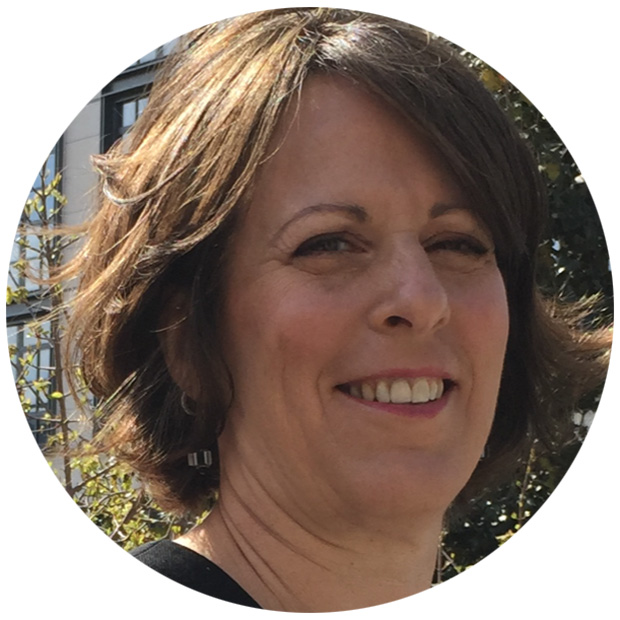How passion propelled Beth Sauerhaft ’85 from the forest to the farmland
December 8, 2022 — When Beth Sauerhaft ’85 graduated from Grinnell, she wasn’t sure what direction she wanted her career to take her. What she did know was that she loved wildlife.
 Beth Sauerhaft ’85
Beth Sauerhaft ’85
“I had dreams of being a wildlife ecologist,” says Sauerhaft. While she originally planned to major in biology, she soon decided a biology major wasn’t right for her. After a constitutional law class with history professor Al Jones ’50, Sauerhaft discovered a newfound interest in American Studies, which she ultimately majored in.
Though her major may have changed, Sauerhaft never lost her love for the outdoors. Sauerhaft’s first job after college was as a ranger in the Grand Canyon. Part of her job was to give talks about geology, ethnobotany, and even a musical history of the Southwest. Reflecting on her time in the Grand Canyon, Sauerhaft says fondly, “It was fabulous. I loved it. The more you walk in and through the Canyon, the more detail you see!”
Sauerhaft now is vice president of programs at American Farmland Trust (AFT), a nonprofit that seeks to protect farmland and the people who farm it as well as promote environmentally sound farming practices. Having worked for both the federal government and private sector with a focus on agriculture and the environment, she brings a vast depth of knowledge to the AFT. She is responsible for managing a team of eight national initiative directors across the country, each of whom has deep subject matter expertise in different areas and manages a full portfolio of projects that move AFT’s mission forward
“It’s a mix between people and budget management, as well as forward looking strategic planning and decision making,” she says.
Sauerhaft says managing her team is like doing a puzzle, where each person brings their particular expertise and skills to the team and the primary challenge is finding their niche. “The people are passionate about what they do,” she says. “There’s something rewarding about it.”
Sauerhaft credits Grinnell College for teaching her communication skills that still benefit her today. She says that she wouldn’t be where she is today without the challenges and lessons learned from her youth.
After the Grand Canyon ranger job, Sauerhaft went on to gain her master’s in environmental management, thinking she’d focus on wildlife ecology at Duke University’s School of Forestry and Environmental Studies, but it didn’t turn out to be what she expected. Sauerhaft focused on natural resource ecology instead. After leaving graduate school and looking for work, she found herself wondering, “What am I going to do when I grow up?”
Her return to natural resources and agroecology proved to be just where Sauerhaft belonged.
Wanting to work for a conservation organization, Sauerhaft quickly learned she would need three things: a Ph.D., knowledge of a foreign language, and experience working abroad in an emerging market country.
“[The conservation organizations] need to know that you can handle it,” Sauerhaft says, “because you can’t just take anyone and send them to some area where there’s not a lot of creature comforts and know that they’re going to survive.”
Sauerhaft’s search for a research position abroad struck gold when she spoke to her roommate, who was pursuing her Ph.D. in biological anthropology and planning to conduct research in the rainforests of Madagascar. Armed with high school French and a passion for wildlife and the outdoors, Sauerhaft embarked on a six-month trip into a remote piece of rainforest in Madagascar as a research assistant, where she hiked 11 kilometers into the nearest town once a week to buy supplies and teach English, all the while discovering where her true interests lay.
“What really interests me is that nexus between conservation and human activity – how these can happen in tandem such that both endure and thrive,” she says. “I wanted to be in an area with multidisciplinary teams where we were figuring out how to make this work together.”
Although she describes the time she spent in Madagascar as amazing, not every aspect of it is something that she would want to revisit. From an abundance of leeches to a lack of clean drinking water, Sauerhaft certainly faced challenges living in the rainforest, among them being that “everything you own is wet all the time.”
While the difficult living conditions aren’t everyone’s cup of tea, Sauerhaft wouldn’t change the experience for anything. “You realize how resourceful you can be, how stoic and tough.”
With research experience in a developing area under her belt and soon a Ph.D. from Texas A&M University, Sauerhaft moved into the U.S. Department of Agriculture, and later joined the Environmental Protection Agency. A highlight later in her career was her stint at PepsiCo, where she worked for nine years as senior director of global environmental sustainability. Sauerhaft says that the best part was the significant impact she was able to have on sustainability of corporate ag supply changes on a global scale. She credits her time there with teaching her how to think creatively and articulate the value of something in terms of the return on investment.
“I’m only going to be successful and have a significant impact if I can show that something has fairly immediate returns,” Sauerhaft says.
— by Clara Bode ’26